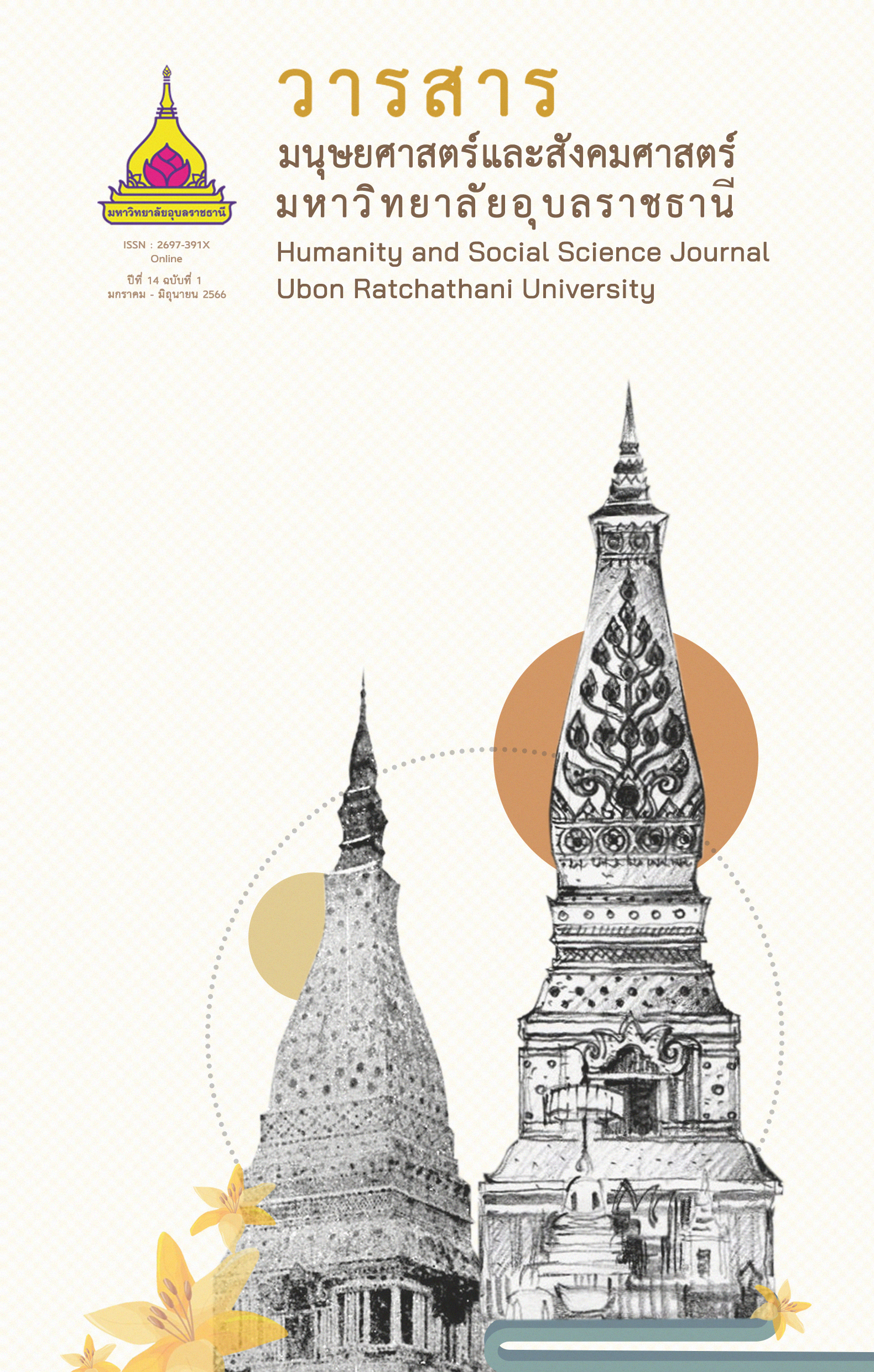สมรรถนะจิตบริการแบบไทยที่โดดเด่นเพื่อการพัฒนาบุคลากรในอุตสาหกรรมการท่องเที่ยวและจิตบริการ
Main Article Content
บทคัดย่อ
การวิจัยนี้มีวัตถุประสงค์เพื่อสังเคราะห์สมรรถนะจิตบริการแบบไทยที่โดดเด่นเพื่อการพัฒนาบุคลากรในอุตสาหกรรมการท่องเที่ยวและจิตบริการ โดยใช้วิธีวิจัยเชิงคุณภาพด้วยการสัมภาษณ์กลุ่มตัวอย่างที่เป็นผู้ประกอบการในอุตสาหกรรมการท่องเที่ยวและจิตบริการ จำนวน 40 คน และนำผลไปประชุมกลุ่มย่อยเพื่อรับรองความเห็นกับผู้มีส่วนได้ส่วนเสียในอุตสาหกรรมดังกล่าว จำนวน 176 คน ผลการวิจัยพบรายการสมรรถนะจิตบริการแบบไทยที่โดดเด่นสามกลุ่มสมรรถนะได้แก่ 1) สมรรถนะเกี่ยวกับการปฏิบัติงานและการสร้างกำไรแก่องค์กร 2) สมรรถนะเกี่ยวกับการติดต่อสื่อสารระหว่างบุคคล 3) สมรรถนะทัศนคติที่เกี่ยวกับตนเอง ในที่นี้ สมรรถนะด้านความซื่อสัตย์และมีจริยธรรม ซึ่งเป็นสมรรถนะในกลุ่มที่ 3 ถูกยกย่องให้เป็นสมรรถนะที่สำคัญที่สุด รองลงมาคือ สมรรถนะในการสื่อสารกับแขก และสมรรถนะการแก้ไขปัญหาให้แขก ซึ่งเป็นสมรรถนะในกลุ่มที่ 2 ในอนาคต มีแนวโน้มว่า สมรรถนะในกลุ่มที่ 2 และ 3 จะทวีความสำคัญจนกลายเป็นสมรรถนะเฉพาะอุตสาหกรรมในที่สุด
Article Details

อนุญาตภายใต้เงื่อนไข Creative Commons Attribution-NonCommercial-NoDerivatives 4.0 International License.
บทความที่ได้รับการตีพิมพ์เป็นลิขสิทธิ์ของวารสารมนุษยศาสตร์และสังคมศาสตร์ มหาวิทยาลัยอุบลราชธานี
ข้อความที่ปรากฏในบทความแต่ละเรื่องในวารสารวิชาการเล่มนี้เป็นความคิดเห็นส่วนตัวของผู้เขียนแต่ละท่านไม่เกี่ยวข้องกับมหาวิทยาลัยอุบลราชธานี และคณาจารย์ท่านอื่นๆในมหาวิทยาลัยฯ แต่อย่างใด ความรับผิดชอบองค์ประกอบทั้งหมดของบทความแต่ละเรื่องเป็นของผู้เขียนแต่ละท่าน หากมีความผิดพลาดใดๆ ผู้เขียนแต่ละท่านจะรับผิดชอบบทความของตนเองแต่ผู้เดียว
เอกสารอ้างอิง
Ackermann, F., & Eden, C. (2007). Putting the resource-based view of strategy and distinctive competencies to work in public organizations. Public Administration Review, 67(4), 702-717.
Barney, & J. B. (1991). Firm resources and sustained competitive advantage, Journal of Management, 17(1), 99-120.
Baum. T. (1990). Competencies for hotel management: industry expectations of education, International Journal of Contemporary Hospitality Management. 2(4), 13–16.
Baum, T. (2006). Reflections on the nature of skills in the experience economy: Challenging traditional skills models in hospitality. Journal of Hospitality and Tourism Management, 13(2), 124-135.
Bharwani, S., & Jauhari, V.(2013). An exploratory study of competencies required to co-create memorable customer experiences in the hospitality industry. International Journal of Contemporary Hospitality Management, 25(6), 823-843.
Bouzdine-Chameeva, T. (2006). How wine sector SMEs Approach strategic questions: Some comparative lessons of causal representation of distinctive competencies, British Food Journal, 108(4), 273-289.
Christou, E. & Eaton, J. (2000). Management competencies for graduate trainees, Annals of Tourism Research, 27(4), 1058–1061.
Department of Investment Coordination, Division of Investment in Tourism Business, Tourism Authority of Thailand. (2013). Ministry of Tourism response to ASEAN MRA to Develop Professional Thai Tourism Personnel’s Competency. http://tourisminvest.tat. or.th (in Thai)
Eden, C., & Ackermann, F. (1998). Making Strategy: The Journey of Strategic Management. London: Sage Publications.
Fukunaka, Y. (2015). Assessing the Progress of ASEAN MRAs on Professional Services. Economic Research Institute for ASEAN and East Asia, 21(3), (1-44).
Gonczi, A. & Hager, P. (2010). International encyclopedia of education. Australia: Elsevier.
Groonroos C. (1983). Strategic Marketing in the Service Sector. Marketing Science Institute, Cambridge.
Godfrey, K., & Clarke, J. (2000). The Tourism Development Handbook: A Practical Approach. Hampshire: Cengage Learning EMEA.
Harrell-Cook, G. (2002). Human Resource Management and Competitive Advantage: A Strategic Perspective. In G. R. Ferris, M. Ronal Buckley & D. B. Fedor (Eds.), Human Resources Management (pp. 30-42). New Jersey: Prentice Hall.
Hosie, P., Sharma, A., Herkenhoff, L., Heydenfeldt, J. A. & Kingshott, R. P.J. (2016), Emerging HRM perspectives on emotional intelligence, mindfulness and neurobiological science on organisational effectiveness, in A. Nankervis, C. Rowley & N. M. Salleh (eds), Asia Pacific Human Resource Management and Organisational Effectiveness: Impacts on Practice, Elsevier, Cambridge, United States. 39-63.
Jauhari, V. (2006). Competencies for a career in the hospitality industry: An Indian perspective. International Journal of Contemporary Hospitality Management, 18(2), 123-134.
Kay, C. & Russette, J. (2000). Hospitality-Management competencies, Cornell Hotel and Restaurant Administration Quarterly, 41(2). 52-63.
Lin. (2002). Exploring the relationships between hotel management courses and industry required competencies, Journal of Teaching in Travel and Tourism, 2(4), 81-101.
McClelland, D. C. (1973). Testing for Competence Rather than for “Intelligence”. American Psychologist, 28(1), 1-14. http://dx.doi.org/10.1037/ h0034092.
Prahalad, C. & Hamel, G.(1990). The core competence of the corporation, Harvard Business Review, 68(3), 79-91.
Sipe L., & Testa M. (2012). International journal of hospitality management. Service-leadership competencies for hospitality and tourism management. United States: Elsevier.
Singal, M. (2015). How is the hospitality and tourism industry different? An empirical test of some structural characteristics, International Journal of Contemporary Hospitality Management, 47(5), 116-119.
Tas, R. (1998). The Cornell Hotel and Restaurant Administration Quarterly, Teaching future managers, 29(2), 41–43.
Tsai et al., R.C. Tsai, B.K. Goh, L. Huffman, & C.K. Wu. (2006). Competency assessment for entry-level lodging management trainees in Taiwan, Chinese Economy, 36(6), 49–69.
Testa, M. R., & Sipe, L. (2012). Service-leadership competencies for hospitality and tourism management. International Journal of Hospitality Management, 31(3), 648-658.
Tourism Authority of Thailand (2015). Market Opportunity for Thai Tourism with Challenges in Entering AEC. http://marketingdatabase. tat.or.th/download/ article/research/ Market Opportunity for Thai Tourism with Challenges in Entering AEC.pdf (in Thai)
Wang, I. A., Lee, B. W., & Wu, S. T. (2017). The relationships among work-family conflict, turnover intention and organizational citizenship behavior in the hospitality industry of Taiwan. International Journal of Manpower, 38(8),1130-1142.
World Tourism Organization and International Labour Organization (2014). Measuring Employment in the Tourism Industries – Guide with Best Practices. UNWTO: Madrid.
Zopiatis, A. (2010). Is it art or science? Cehf's competencies for success. International Journal of Hospitality Management, 29(3), 459-467.


